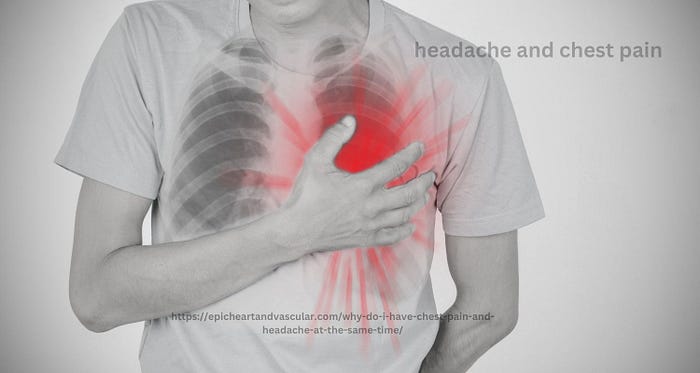Can Cold Air Cause Your Lungs to Burn?
Have you ever stepped outside on a chilly day and felt a sharp, burning sensation in your lungs? If so, you're not alone. Cold air can trigger discomfort in the respiratory system, especially for those with underlying lung or heart conditions. headache and chest pain Some people also report a weird feeling in the chest with no pain, along with headache and chest pain when exposed to cold temperatures. But why does this happen, and when should you be concerned?

Why Does Cold Air Make Your Lungs Burn?
1. Airway Constriction
When you breathe in cold air, your airways react by narrowing—a condition known as bronchoconstriction. This restricts airflow and can make breathing feel more difficult. If you already have sensitive lungs, this may cause a burning sensation in the lungs or shortness of breath.
2. Dryness and Irritation
Cold air tends to be dry, which can strip moisture from your airways. The lack of humidity irritates the lung lining, leading to inflammation and discomfort. This is why some people experience a weird feeling in the chest with no pain, especially after exercising in cold weather.
3. Increased Heart Strain
Breathing in cold air can also put extra strain on the heart. If you have underlying heart conditions, the drop in temperature may contribute to headache and chest pain due to reduced oxygen circulation. In some cases, an abnormal echocardiogram may reveal changes in heart function caused by cold exposure.
Who Is Most at Risk?
While anyone can experience burning lungs from cold air, certain groups are more susceptible, including:
- People with asthma or COPD
- Those with heart disease (who may burning lungsalready have an abnormal echocardiogram)
- Athletes or outdoor exercisers

- Individuals with seasonal allergies
How to Protect Your Lungs in Cold Weather
If you frequently experience burning lungs, headache and chest pain, or a weird feeling in the chest with no pain when exposed to cold air, try these tips:
- Wear a Scarf or Mask – Cover your mouth and nose to warm and humidify the air before it enters your lungs.
- Breathe Through Your Nose – This helps warm and filter the air before it reaches your lungs.
- Limit Intense Outdoor Exercise – If possible, opt for indoor workouts on especially cold days.
- Stay Hydrated – Drinking warm fluids can help soothe irritated airways.
- Consult a Doctor – If your symptoms persist, a doctor may recommend lung function tests or an echocardiogram to check for underlying issues.
Conclusion
Cold air can cause burning lungs and other discomforts, especially if you have pre-existing respiratory or heart conditions. If you experience frequent headache and chest pain, a weird feeling in the chest with no pain, or have concerns about an abnormal echocardiogram, it’s best to seek medical advice. Protecting your lungs in abnormal echocardiogram cold weather can help you breathe easier and stay healthy all season long.

Have you noticed your lungs burning in cold air? Share your experience in the comments below!
- Questions and Answers
- Opinion
- Motivational and Inspiring Story
- Technology
- Live and Let live
- Focus
- Geopolitics
- Military-Arms/Equipment
- Sécurité
- Economy
- Beasts of Nations
- Machine Tools-The “Mother Industry”
- Art
- Causes
- Crafts
- Dance
- Drinks
- Film/Movie
- Fitness
- Food
- Jeux
- Gardening
- Health
- Domicile
- Literature
- Music
- Networking
- Autre
- Party
- Religion
- Shopping
- Sports
- Theater
- Health and Wellness
- News
- Culture

